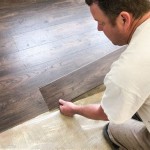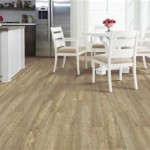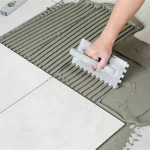Remove Tough Stains From Bathroom Tiles
A pristine bathroom is a haven of relaxation and cleanliness. However, over time, the constant use and exposure to moisture can lead to the build-up of stubborn stains on bathroom tiles. These stains can range from soap scum and hard water deposits to mildew and rust, leaving your once-pristine bathroom looking dull and unappealing. Fortunately, with the right tools and techniques, you can effectively remove these tough stains and restore your bathroom tiles to their former glory.
Understanding the Stains
Before diving into cleaning techniques, it is essential to understand the nature of different stains. This knowledge will guide your choice of cleaning agents and methods:
- Soap Scum: This milky residue is a common culprit in bathrooms, primarily caused by the buildup of soap and detergent residue. It often clings stubbornly to tiles and grout, making them appear dull and dingy.
- Hard Water Deposits: These are mineral deposits left behind by hard water, typically containing high concentrations of calcium and magnesium. They manifest as white or yellowish stains, often appearing as a crusty film on tiles and fixtures.
- Mildew: This type of fungus thrives in damp, humid environments. It appears as black, gray, or green spots, typically found in areas receiving less sunlight, such as shower corners and grout lines.
- Rust: This orange-brown stain can occur due to metal fixtures or pipes coming into contact with water, causing iron oxide to form. It can be difficult to remove, often leaving behind permanent discoloration if not addressed promptly.
Effective Cleaning Techniques
The most effective way to remove tough stains from bathroom tiles depends on the type of stain and the material of the tiles. Here are some tried-and-tested methods for different types of stains:
Soap Scum
- Baking Soda and Vinegar: This natural solution is a powerful stain remover. Mix baking soda with water to form a paste, apply it to the affected area, and let it sit for 15-20 minutes. Then, pour white vinegar over the paste and watch it fizz. This reaction breaks down the soap scum, allowing you to easily wipe it away.
- Commercial Cleaners: For stubborn soap scum, consider using a commercial cleaner specifically designed for bathroom cleaning. Choose a product with a high concentration of citric acid or lactic acid, which are effective in breaking down soap residue.
Hard Water Deposits
- White Vinegar: Dilute white vinegar with water (1:1 ratio) and spray it onto the hard water stains. Let it sit for 15-20 minutes, then scrub with a soft-bristled brush. Vinegar's acidic nature dissolves mineral deposits, making them easier to remove.
- Commercial Descaler: If vinegar doesn't do the trick, try a commercial descaler specifically formulated to remove hard water deposits. Follow the instructions carefully, as some descalers require time to work their magic.
Mildew
- Bleach Solution: Dilute bleach with water (1:10 ratio) and pour it into a spray bottle. Spray the mildew-infested areas, let it sit for 10-15 minutes, and then scrub with a brush. Ensure adequate ventilation during the process to prevent any harmful fumes.
- Borax: Mix borax with water to create a paste and apply it to the affected areas. Let it sit for a few hours, then scrub with a brush and rinse thoroughly. Borax is a natural cleaner with antifungal properties, effectively removing mildew and preventing its recurrence.
Rust
- Lemon Juice and Salt: Combine lemon juice with salt to form a paste and apply it to the rust stains. Let it sit for at least 30 minutes, then scrub with a brush. Lemon juice's acidity helps break down rust, while salt acts as an abrasive to remove the loosened particles.
- Commercial Rust Remover: For persistent rust stains, consider using a commercial rust remover. However, apply it cautiously, following the instructions carefully. Some rust removers can damage certain tile surfaces.
Additional Tips for Stain Removal
- Pre-treating Stains: Before applying any cleaning solution, it's beneficial to pre-treat the stains with a solution of dish soap and water. This helps loosen dirt and grime, making it easier to remove the stains.
- Using a Soft-Bristled Brush: Choose a soft-bristled brush for scrubbing, as hard brushes can scratch or damage the tile surface. Avoid using abrasive scouring pads or steel wool, as these can leave permanent scratches.
- Thorough Rinsing: After applying any cleaning solution, rinse the tiles thoroughly with clean water to remove any residue. This helps prevent re-staining and ensures a sparkling clean finish.
- Drying the Tiles: After rinsing, dry the tiles completely using a clean cloth or towel. This helps prevent water spots and promotes a clean and dry environment in your bathroom.

3 Best Ways To Get Rid Of Hard Water Stains From Bathroom Tiles Kent

10 Ways To Clean And Remove Stains From Bathroom Tiles Bria Homes

How To Clean And Re Tiles In Bathroom

How To Clean Tiles With Stubborn Stains Bathroom Hardone Forums
How To Clean Shower Stains Walls Floors Bees Housekeeping

Home Remedies To Remove Bathroom Tiles Stubborn Stains

How To Remove Tough Stains From Bathroom Tiles Cleaning Tilescleaning

3 Ways To Remove Stains From Tiles Wikihow

How To Remove Hard Water Stains From Tile And Grout Woodard

How To Remove Stubborn Stains On Toilet Tiles Part Time Maid Singapore
Related Posts








